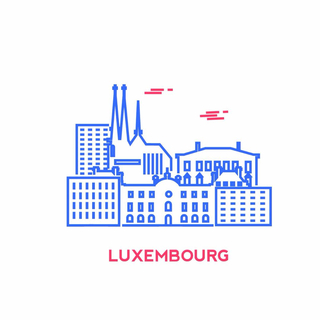
The City of Luxembourg and access to property
Loosen up a real estate market which implies a constant inflation of prices, encourage social diversity and genuine solidarity between neighbours…many good reasons that encourage the elected representatives of the capital of the Grand Duchy to multiply initiatives boosting access to property. A voluntary position which mobilizes partners.
While the population of the City of Luxembourg has expanded for more than 40 % since the beginning of this century, (growing from 80 670 inhabitants in 2000 to more than 115 000 in 2017) the authorities of the capital have decided to adhere to this particularly proactive policy.
It is true that the capital of the Grand Duchy does not lack assets and indeed attracts more and more ‘candidates’ wanting to enjoy its high quality of life. While remaining a municipality of human scale, Luxembourg City is an example of dynamism, cleanliness and security. Luxembourg City is an international and multi-cultural capital, cultivating its cultural and sports advantages. However, the real estate market is logically tight and prices continue to rise. That is why several levers have come into action.
Groups of participative habitation
One of the initiated formulas is the creation of participative habitation, a concept that has already convinced neighbouring countries, facilitating the regrouping of individual proprietors. Associated to the definition, conception, and the construction of their future homes, they can then participate to the management of the site. Following up on this project, the City of Luxembourg has made two parcels of land available. 8 to 9 homes will thus be built on Boulevard Grande-Duchesse Josephine-Charlotte à Belair, and 5 or 6 homes on rue Eduard Grenier at Bonnevoie. The procedure of the selection of the ‘candidates’ was launched last spring. Two formulas are suggested for each group: outright acquisition or a lease for 99 years. Legal precision: in this case, the tenant can benefit of rights similar to those of a ‘classic’ proprietor and has priority on later acquisition.
In this way, the City hopes to stimulate a greater involvement of the future occupants in the project for the conception onwards (their opinion is considered in the choice of materials, for example, or the layout of common areas), forming a veritable community, permitting lower prices (15 to 20% less) thanks to the absence of agency and promoter costs.
Moderate cost housing
The other part of the policy of the local administration is based on the law of 2004 whereby “promoters are committed to reserve 10% of housing at moderate cost in each plan of more than 1 hectare”. Of course, knowing that candidates for the acquisition of these dwellings must meet the “conditions for the grant of a premium of construction or acquisition” provided by the legislator.
In several recent cases, the City has activated these levers in different manners.
Rue de Muhlenbach, the City exercised its right of pre-emption on four houses at moderate cost in a new, well-placed residence that had not been sold by the promoter, and then resold them. In addition to the conditions foreseen by law, the authorities established other criteria for selecting the candidates, such as their place of work. The operation began in December 2016.
In another large-scale project, Baulücken, the modus operandi was radically different. Not only did the City want low-price housing, but also wanted to encourage social mixity in the neighbourhoods concerned. The City gave authority to private developer-constructers to sell various carefully selected properties based on the rights of the 99-year lease, allowing to retain ownership of the land and especially to select potential buyers.
A first phase (2010) resulted in the sale of 75 homes at affordable prices. A second phase 2014-2015) has conducted to the sale of 88 dwellings. A third phase has finally begun and will be completed in 2018 for a total of 66 (35 intended for sale, 31 to be rented).
A successful challenge
On a similar operating mode, we will finally mention the operation initiated rue des Lilas and rue de la Lavande for the construction and sale of 25 houses. The municipality gave land to the Nation Society of Low-Cost Housing in the form of rights to 99-year leases which were sold to buyers in the same form. Constructed by the SNHBM, the housing is of the type low consummation, and 95% of buyers (of different nationalities) have received State construction premiums. The homes were delivered in December 2015.
Sometimes linked to public partnerships, (the State as a social landlord) or to private promotors, the City of Luxembourg gives itself the political, financial, and legal means to succeed this challenge., becoming a means of access to good quality properties of more than 100 m² meters for less than 500 000 euros to new home-owners who otherwise would have had to renounce to their dreams…
